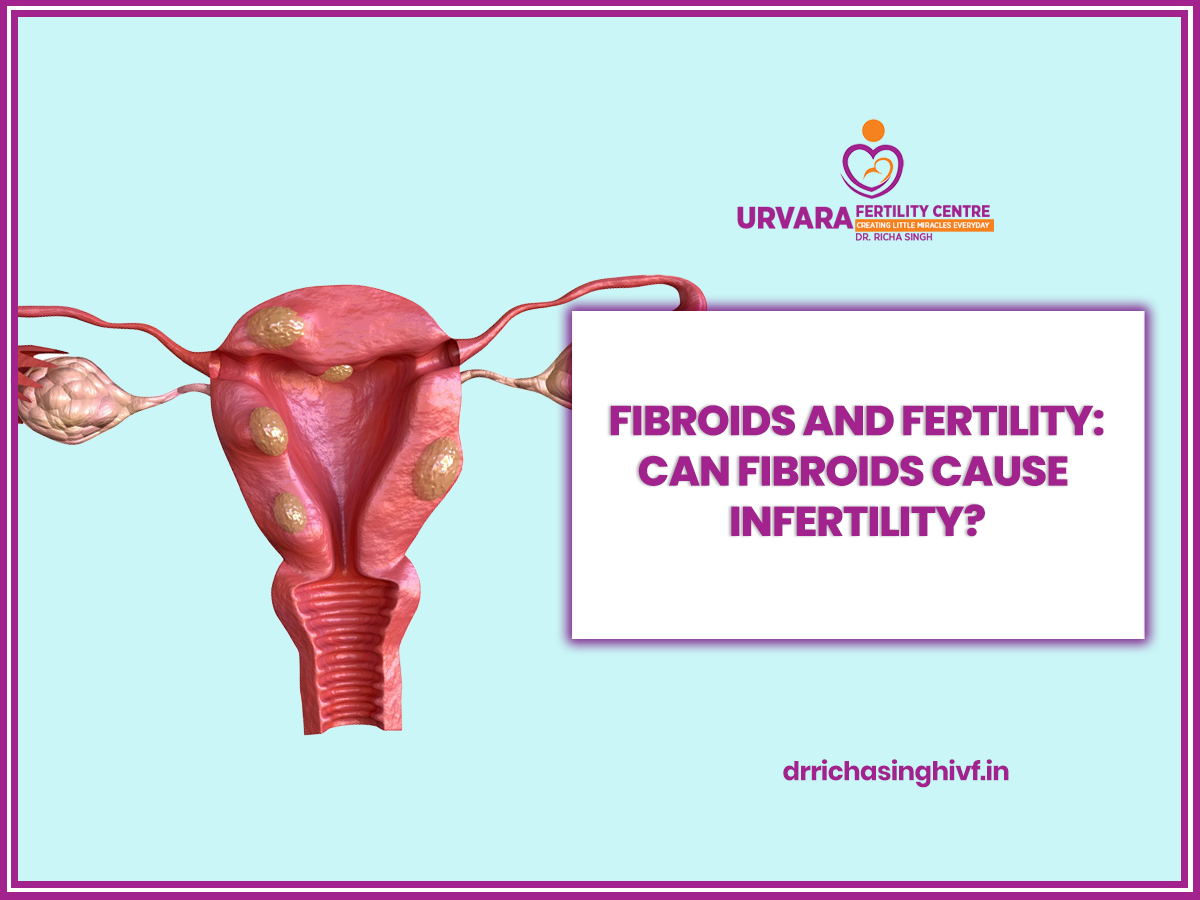Can Fibroids Cause Infertility?
Are you an infertile woman who has been trying to conceive a baby for the past few years? You might be wondering what are the causes behind this. Well, there are many causes of female infertility and uterine fibroids are the most common cause of infertility. Uterine fibroids can be found in almost 40% of all women between the ages of 30 to 40 years. Let’s understand the relationship between fibroids and infertility.
What are the Types of Uterine Fibroids?
Fibroid is one factor that can affect your infertility, but they are noncancerous. Its types are subserosal fibroids which means fibroids are present in the outer wall of the uterus. Another is intramural, which means fibroids found in muscular layers of the uterine wall. Submucosal uterine fibroids are found in the inner lining of the uterus and may protrude into the uterine cavity. Other than these Pedunculated fibroids are attached to the uterus, either internally or externally. Whereas Cervical fibroids are found in the lower part of the uterus that connects to the vagina.
How do you know if you have Fibroids?
Painful periods, heavy bleeding, lower back pain, and frequent urination are some common symptoms of fibroids. If you think you are facing any of these symptoms or you have any doubt related to fibroids, then you can undergo for ultrasound to find out whether you have fibroids or not.
Can Fibroids Affect Fertility?
According to the American Society for Reproductive Medicine, 5% to 10% of infertile
women have fibroids and they face challenges in conceiving. Fibroids can affect
infertility depending on their size, location, and type. Fibroids can impact the
fertility of a woman in many ways. Uterine lining thickness can be impacted by the
presence of fibroids.
Not only this, Fallopian tubes can be blocked by fibroids, making it difficult or
impossible for a fertilized egg to reach the uterus and implant, Changes in the shape of
the uterus also take place due to fibroids which leads to implantation failure of an
embryo. Fibroids also decrease the blood flow in the uterine cavity which negatively
impacts fertility.
Does Fibroids Affect My Pregnancy?
Fibroids increase the risk of complications during your pregnancy. Large fibroids do not give enough space for the embryo to fully develop due to less space in the uterine cavity. Placenta abruption also takes place due to fibroids which means when the placenta breaks away from the uterine wall the limited amount of oxygen and nutrients will reach to embryo because of the presence of fibroids. Fibroids may result in Preterm delivery due to severe pain and uterine contractions. Miscarriage or breech position (because of the abnormal shape of the uterine cavity the baby may not be able to align for vaginal delivery) may also take place due to uterine fibroids.
What are the Treatment Options for Fibroids?
With the help of monitoring and observation, it is easier to track the growth and size
of uterine fibroids over time. Fibroid treatment is also based on your situation such as
the severity of your symptoms. If the fibroids are present inside of the uterus, then it
will negatively impact the implantation process. If fibroids obstruct the fallopian tube
or uterine cavity, this may block the movement of sperm and decrease the chances of
successful fertilization of the egg. Most women consider fertility treatment in Lucknow
even if they face fibroids issues.
Hormonal contraceptives do not affect fibroids themselves, but GnRHa medications can
help reduce the size of fibroids. Other than hormonal contraceptives, a fertility
specialist may suggest for myomectomy. This is a surgical removal of fibroids from the
uterus. It is the best fibroid treatment for people who are trying to conceive but
facing issues due to fibroids.
This surgical process gives you relief from bleeding between periods, pelvic pain, Heavy
menstrual bleeding, and other symptoms of fibroids. Well, there are different types of
myomectomies like abdominal myomectomy process, Laparoscopic myomectomy, and
Hysteroscopic myomectomy. The surgical treatment which is suggested by your fertility
specialist will depend on the location, size, and number of uterine fibroids to be
removed.
Abdominal myomectomy is performed if a woman has a large uterus, and more fibroids are
in the uterus. The recovery period of this process is around five to six days. Whereas
laparoscopic myomectomy is performed to remove fibroids that are more in number and
deeply present in the uterine wall.
After this treatment, a woman may recover faster and may feel less pain. Another process
is Hysteroscopic myomectomy. To remove specific types of fibroids this treatment is
performed by the surgeon. Submucosal fibroids that are not deep in the uterine wall and
are smaller than 4 centimeters can be treated hysteroscopically and patients can be
discharged the same day as it is minimally invasive.
Each treatment has its risks and complications that why it is necessary to understand
the whole treatment process before undergoing any of them.
Conclusion
It is better to understand fibroids so that you can discuss with your fertility specialist about having a safe pregnancy in the future. If you have fibroids and you want to conceive then your fertility specialist may suggest (IVF) In Vitro Fertilization process. With the help of successful IVF treatment in Lucknow, you can build a parenthood journey advanced and least complicated.
